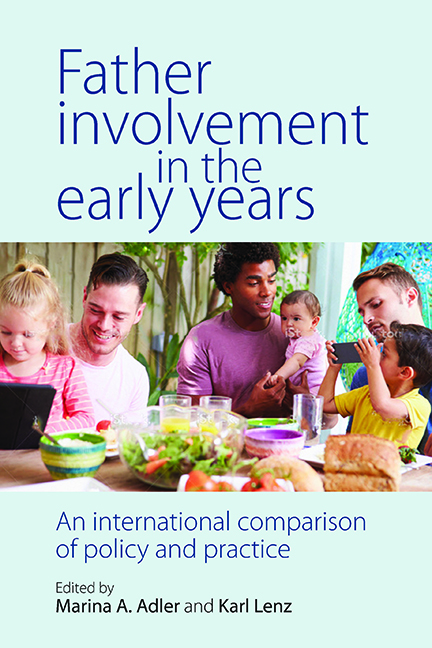Two - Germany
Published online by Cambridge University Press: 01 September 2022
Summary
The cultural and policy context of fatherhood
Contemporary perceptions of German fatherhood and fathering are rooted in the unique history of the division and reunification of two independent states, the Federal Republic of Germany (FRG, now the Western states) and the German Democratic Republic (GDR, now the Eastern states). German unification in 1990 combined the West German ‘ideal-typical’ conservative welfare state and strong male-breadwinner system with the East German socialist full-time dual-earner system. The West German male-breadwinner model, with an exclusive ‘family phase’ for mothers, but not for fathers, was based on a strong maternalist ideology, which was also reflected in family policies. By contrast, in the former GDR, the ‘mother as worker’ ideal dominated, and both parents were expected to focus on employment, while the state cared for their children. The German merger resulted in a combined one-and-a-half-breadwinner system, with continued major regional variation, and recent efforts to include fathers more actively in leave policies (Erler, 2011). As a result, in the East German states, more parents continue to be dual-earner couples with two full-time earners, while in the West, most parents still have either one full-time and one part-time earner or only one earner; two full-time earning parents are uncommon.
Family policies in both German states were targeted at mothers rather than fathers: in the GDR, mothers received support to combine motherhood and employment to become full-time working mothers, while in the West, mothers were encouraged to leave the labour market for three years to become full-time mothers and then re-enter on a part-time basis (Adler, 2002, 2004; Adler and Brayfield, 2006). The different policy and cultural contexts that developed in the two separate states have lingering effects on the gendered ‘culture of care’ in the contemporary Eastern and Western states (Ostner, 2002; Adler and Brayfield, 2006; Lenz and Adler, 2010) and also reflects regional variations in the inclusion of fathers in care work (Erler, 2011; Meuser, 2014).
While recent legislation has improved institutional support for work–life reconciliation via public childcare and paternal leave, including ‘daddy months’, the cultures of time, care and workplace remain in favour of ‘mother care’ for young children, particularly in the West.
- Type
- Chapter
- Information
- Father Involvement in the Early YearsAn International Comparison of Policy and Practice, pp. 61 - 96Publisher: Bristol University PressPrint publication year: 2015
- 1
- Cited by

